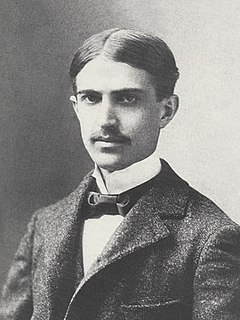A Quote by Angela Carter
Drosselmeier had unwittingly exposed himself to an overdose of reality, and it had destroyed his reason.
Related Quotes
I had lines inside me, a string of guiding lights. I had language. Fiction and poetry are doses, medicines. What they heal is the rupture reality makes on the imagination. I had been damaged, and a very important part of me had been destroyed - that was my reality, the facts of my life. But on the other side of the facts was who I could be, how I could feel. And as long as I had words for that, images for that, stories for that, then I wasn't lost.
He had thrown himself away, he had lost interest in everything, and life, falling in with his feelings, had demanded nothing of him. He had lived as an outsider, an idler and onlooker, well liked in his young manhood, alone in his illness and advancing years. Seized with weariness, he sat down on the wall, and the river murmured darkly in his thoughts.
When Luke had descended into the River Styx, he would've had to focus on something important that would hold him to his mortal life. Otherwise he would've dissolved. I had seen Annabeth, and I had a feeling he had too. He had pictured that scene Hestia showed me—of himself in the good old days with Thalia and Annabeth, when he promised they would be a family. Hurting Annabeth in battle had shocked him into remembering that promise. It had allowed his mortal conscience to take over again, and defeat Kronos. His weak spot—his Achilles heel—had saved us all
When I first walked into a church, I was judged heavily for my life, and how I had lived, and that's part of the reason why now I am trying to make a change in our churches, because what happened was it was almost like something I had to keep secret, when in reality, Jesus himself hung out with prostitutes and tax collectors.
How did it happen that now he could see everything so clearly. Something had given him leave to live in the present. Not once in his entire life had he come to rest in the quiet center of himself but had forever cast himself from some dark past he could not remember to a future that did not exist. Not once had he been present for his life. So his life had passed like a dream. Is it possible for people to miss their lives the way one can miss a plane?
At one o’clock, the ever-logical Right-Eye Grand Steward woke up to discover that during his sleep his left-eyed counterpart had executed three of his advisors for treason, ordered the creation of a new carp pool and banned limericks. Worse still, no progress had been made in tracking down the Kleptomancer, and of the two people believed to be his accomplices, both had been released from prison and one had been appointed food taster. Right-Eye was not amused. He had known for centuries that he could trust nobody but himself. Now he was seriously starting to wonder about himself.
But all three of them had had to lose things in order to gain other things. Will had lost his shell and his cool and his distance, and he felt scared and vulnerable, but he got to be with Rachel; and Fiona had lost a big chunk of Marcus, and she got to stay away from the casualty ward; and Marcus had lost himself, and got to walk home from school with his shoes on.
He was so far from the gallant knights in her romantic fantasies ... He was tarnished, scarred, imperfect. Deliberately he had destroyed any illusions she might have had about him, exposing his mysterious past for the ugly horror that it was. His purpose had been to drive her away. But instead she felt closer to him, as if the truth had bonded them in a new intimacy.





































